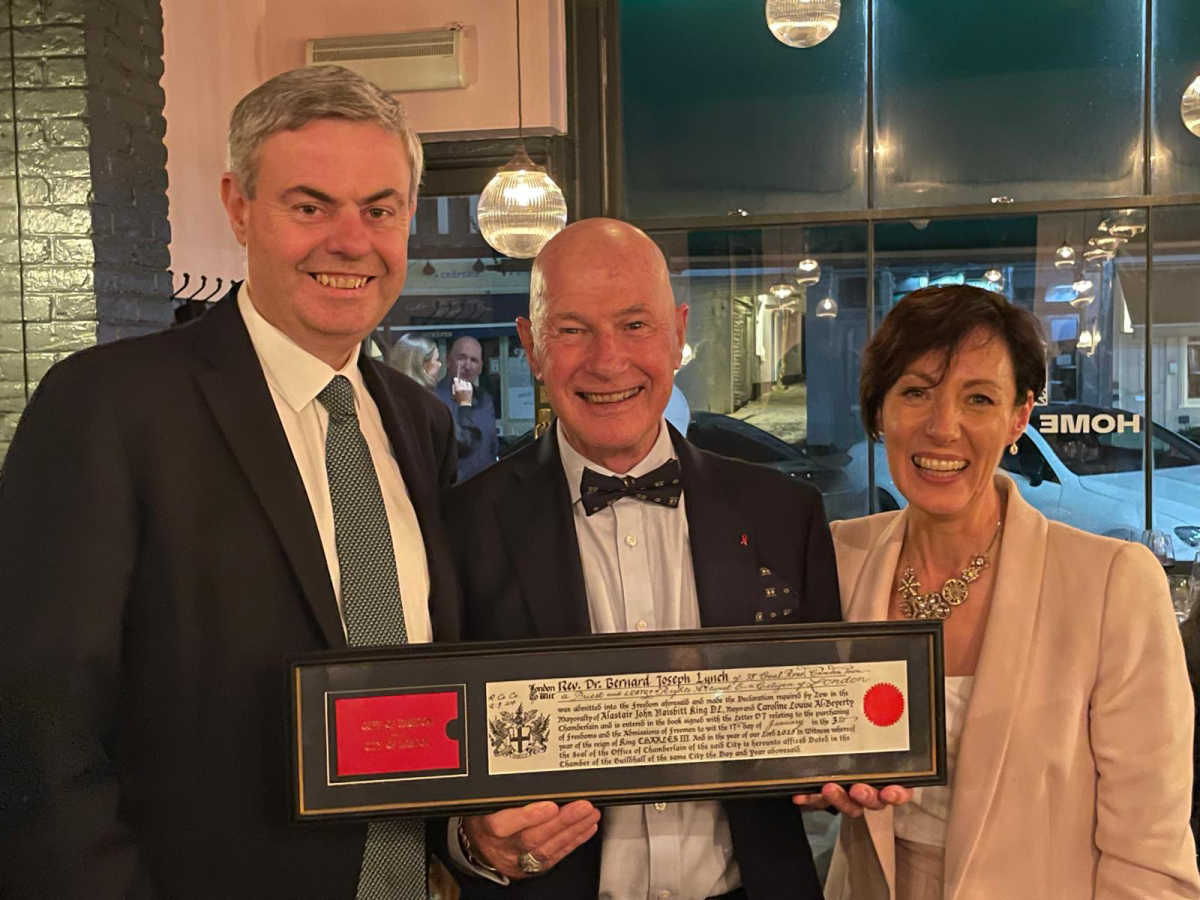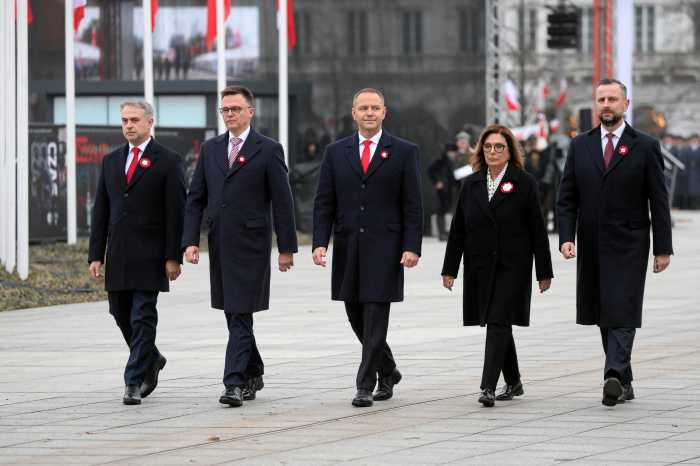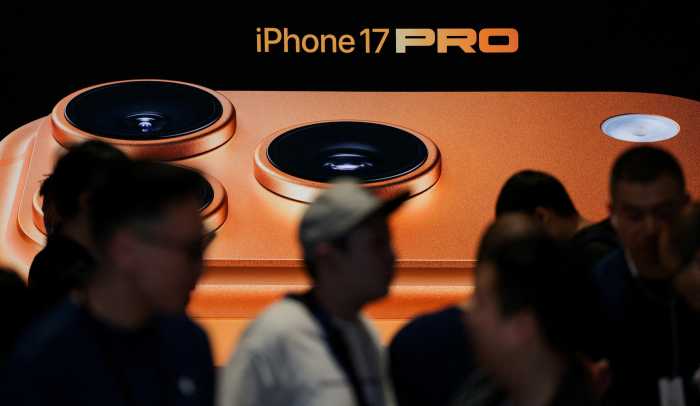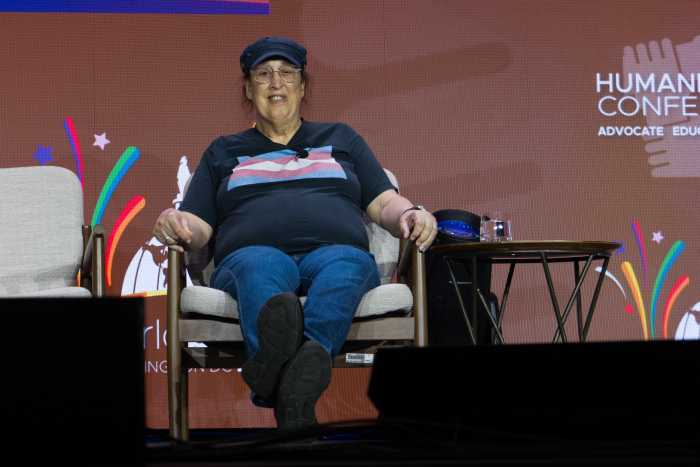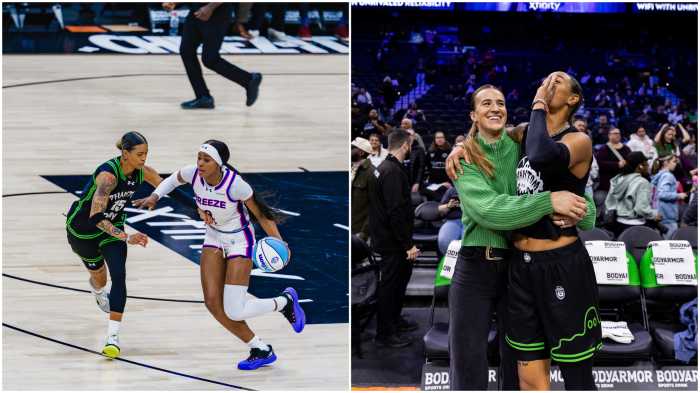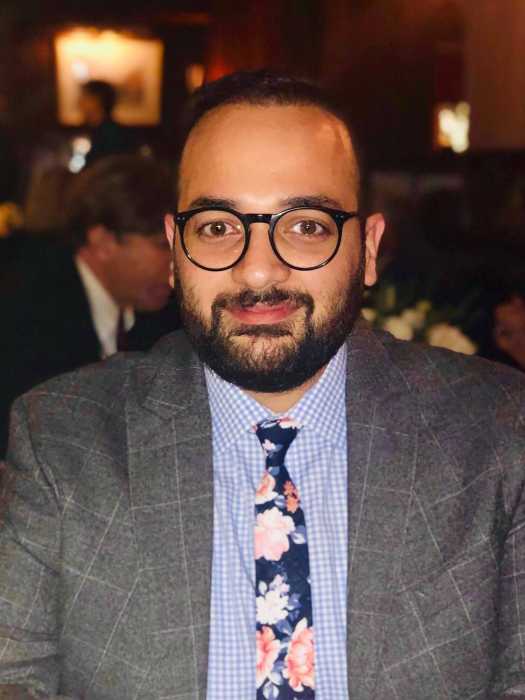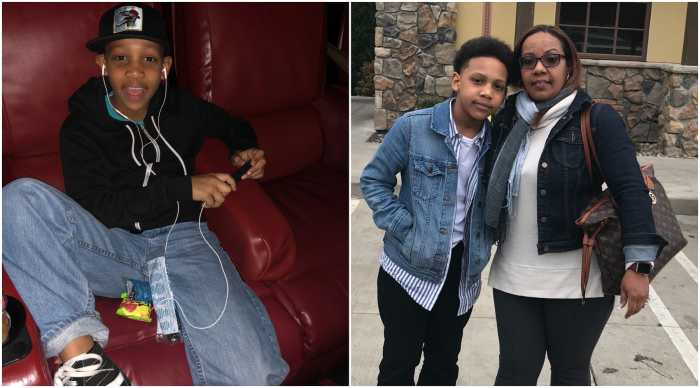Rev. Dr. Bernárd Lynch, who did groundbreaking AIDS ministry in New York and London and who risked everything by speaking out for LGBTQ rights as an openly gay married Catholic priest, became a Freeman of the City of London at a ceremony at London’s Guildhall on Jan. 17, receiving an honor dating back to 1237, shortly after Magna Carta.
The “Freedom of the City of London” has been bestowed in more recent years on leaders from Franklin Roosevelt to Winston Churchill and Nelson Mandela to artists such as Ian McKellen and Judi Dench.

Lynch, 77, was surrounded by friends and family, including his husband, Billy Desmond, at the intimate ceremony supervised by the Ward Beadle and led by the clerk of the Chamberlain’s Court, Laura Miller, who explained its storied history and celebrated Lynch’s many achievements in civic and religious life, from Ireland to Africa to America to the UK.
The subsequent reception on Primrose Hill was attended by the Irish Ambassador to the UK, Martin Fraser, who read a letter of congratulations from Irish President Michael D. Higgins for this “apt recognition of your extraordinary contributions over many years for your efforts in advocating for equal rights, particularly for the LGBTQIA+ community, and individuals affected by HIV/AIDS.”
In reflecting on the honor, Lynch recalled his work in the early 1980s at the dawn of the pandemic leading an AIDS ministry for Dignity/New York at a time when people with the mysterious syndrome were being abandoned by their families, their government, and their churches.
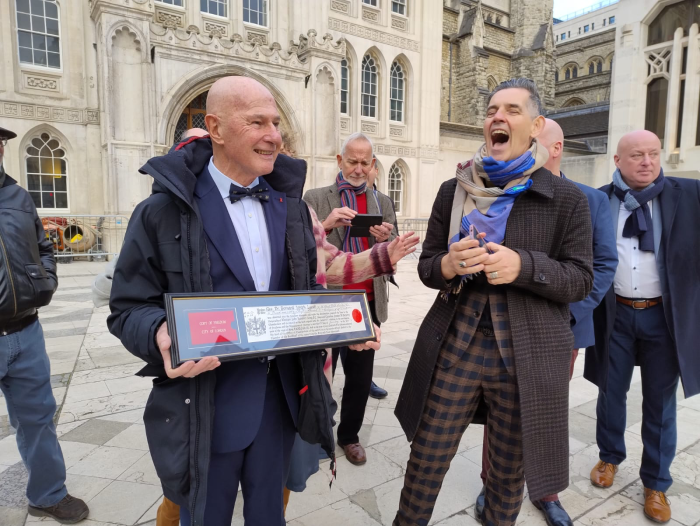
“When HIV/AIDS hit us with the force of a nuclear tsunami,” he told the assembled, “we learnt from the depths of our oppression that life is most radically about justice. While one can have justice without love, one cannot have love without justice.”
“People pay for what they do,” he said, and few paid as dearly as Lynch for sticking his neck out with his Roman collar on. Lynch was persecuted by the Catholic Archdiocese of New York for working tirelessly with dying gay men, giving them affirmation and solace unavailable to them from the institutional church. He spoke of how Desmond recently asked him, “How did you keep going? You were the only priest that stood up for us! How did you find hope in the face of such tragedy and injustice?”
Lynch credits the unconditional love he got from his late mother and the support he got from his father, who just turned 100, when he was put on trial in the Bronx in 1990 on false charges that were thrown out of court and where he was exonerated. “This is where hope began,” he said as he went from the courtroom to “the hospital beds of my dying brothers.”
“Where there is no love you put in love and there you will find love,” he said. “They taught me love” amidst “unspeakable grief.”
He continued that work in London, where he put down roots in 1991.
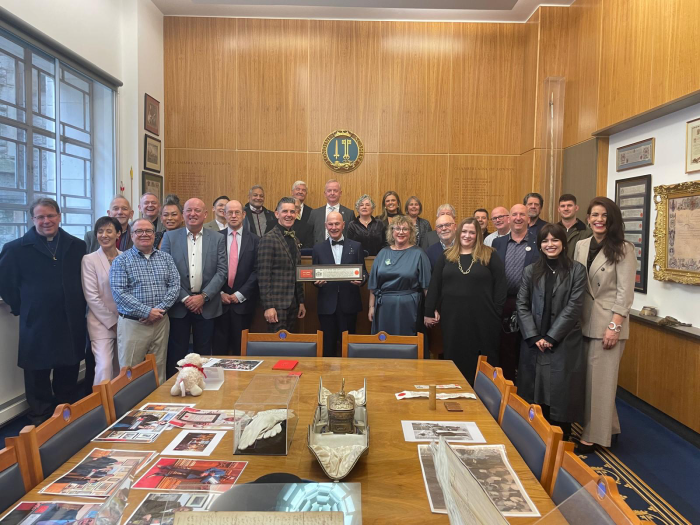
As for being honored in a country where he has lived now for 34 years and has not always felt welcome as an Irishman, he quoted President Higgins, who said during a state visit to the UK, “We British and Irish live in each other’s shadow.”
“That shadow is made much brighter today,” Lynch said, “not just for me, for all minorities and for all the diaspora of every race, color, and creed.”
“Freedom is ultimate,” he told RTE (Irish TV), “whether we’re talking about life or love or doing works of justice. We pursue [freedom] all our lives and I don’t think we ever catch up with it. But there are moments when we have more space to be who we are and to be accepted for what we’ve done… Anything that brings people together and allows people to celebrate their own humanity however that expresses itself is a great gift.”
Amen to that, Bernárd Lynch.

